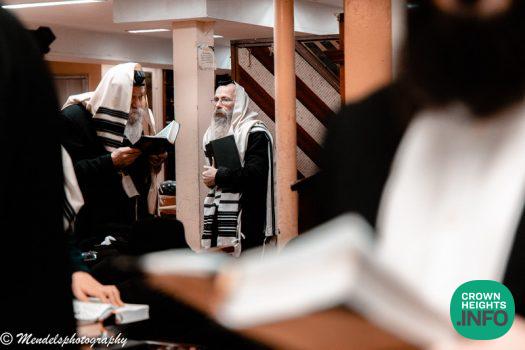
When An Educator Can’t Say Kaddish For a Loved One
Question: I am a teacher in a day-school in a small Jewish community. I have lived here for a number of years and dedicated myself to the families here. Recently, my mother passed away and I need to say Kaddish. This town struggles to put together a daily minyan and I feel really guilty about not being able to say Kaddish and help the elevation of the soul of my mother. I am considering taking a year off of teaching and moving to a larger community to be able to say Kaddish daily. Would the Rebbe approve of such a move?
Answer: (1) In 5720 (1960), the Rebbe received a letter from Rabbi Yisroel Leibov of Kfar Chabad. Rabbi Leibov was in charge of the Lubavitch Youth Organization in Eretz Yisrael which oversaw the Chabad outreach activities in the country. He would travel to small communities and villages and enroll children into religious schools and other activities. That year, one of his parents passed away, and because of his educational activities, he was unable to always say Kaddish. This bothered him very much and he wrote to the Rebbe about it. The Rebbe responded:
“Regarding what you write about your activities, that … make it very difficult to daven by the Amud and say the right amount of Kaddeishim: I have written about this many times. It is impossible that a soul will be elevated by (a son) decreasing in their performance of Torah and Mitzvos. Torah-true Jewish education is from the most fundamental aspects of Yiddishkeit, and the merit of the community is dependent on him (unlike with the recitation of Kaddish).”
“Thus, it is obvious that you should not decrease your involvement in promoting Jewish education. On the contrary, you should add!”
The Rebbe adds:
“In order for you not to miss the Kaddeishim, you could hire someone to say Kaddish on your behalf. This will enable you to focus on you work and not diminish it.” (Igros, Vol. 19 p. 29; #7292).
(2) One of the famous Israeli Chabad activists was Rabbi Yitzchak Gansburh A”H. In the same year, 5720 (1960), he was facing a similar situation. He decided to start a shiur on Mishnayos in the memory of his loved ones. He wrote about this resolution to the Rebbe and received the following response:
“Based on what is explained in various places about the nachas (spiritual pleasure) that deceased parents receive from the positive resolutions and activities of their children, it is understood that nothing should be done that would diminish in any way the education of Jewish children..” (Ibid, p. 272; #7272).
Missing Kaddish to support one’s family
As we are discussing the topic of the priority of saying Kaddish over other matters, I would like to share another interesting letter of the Rebbe about a similar topic.
(3) In 5711 (1950), Rabbi Chaim Meir Minkowitz from Montreal, Canada was offered a job as a shochet in a city that did not have a steady minyan. He was in the year of mourning and that would mean that he would miss saying the daily kaddish. Yet, he had many debts — including the cost of the burial of his father — and he needed the money to cover his debts.He wrote to the Rebbe about it and received the following reply:
“There are many things that our sages have allowed in order for someone to make a livelihood …This is especially true in your particular case that you have brothers that would be saying Kaddish for your father, so the best thing would be to hire someone to say Kaddish on your behalf. It is also proper that at the time of davening, you should give Tzedakah and learn Mishnayos and also try to be the one that is leading the bentching after food.”
The Rebbe then adds this amazing paragraph:
“The above (permission to miss saying Kaddish because of financial considerations) is only because I do not know how strong you are internally with your trust in Hashem. If you are strong in your trust in Hashem, and you look for other sources of income, then Hashem will arrange for you that your source of income should be in a place where there is a steady minyan.” (Igros, Vol. 3 p. 372; #674)












Nossy
To add to this, I heard a shliach had a similar situation, and he told the Rebbe that going on shlichus would mean his not being able to say kadish, the Rebbe told him that by doing his shlichus well, he would be accomplishing the same elevation for his father.
Nossy
On another note, they say the Alter of novoradok, didn’t inform a student that his father passed away, because it would interfere with his learning, and as for kadish and the soul elevation, the Alter said, his Gemara learning is accomplishing the same thing.